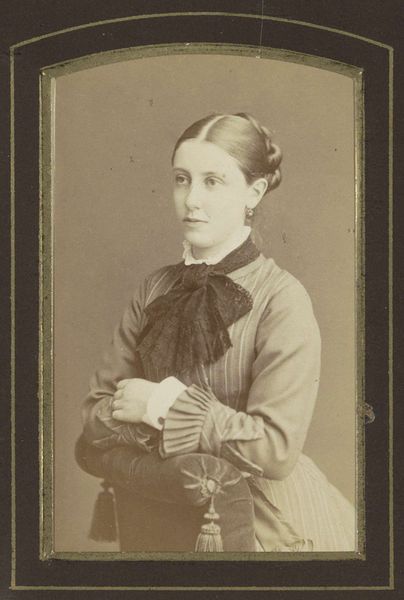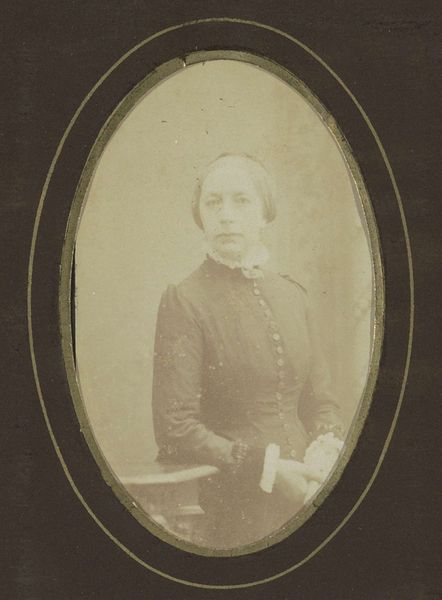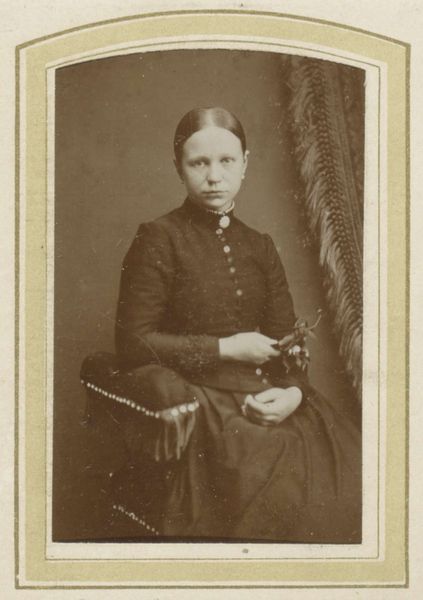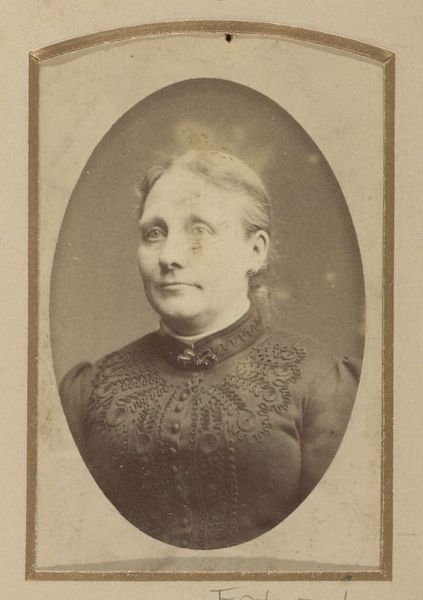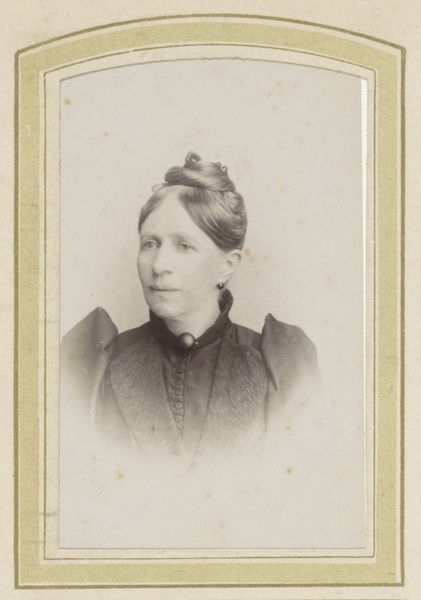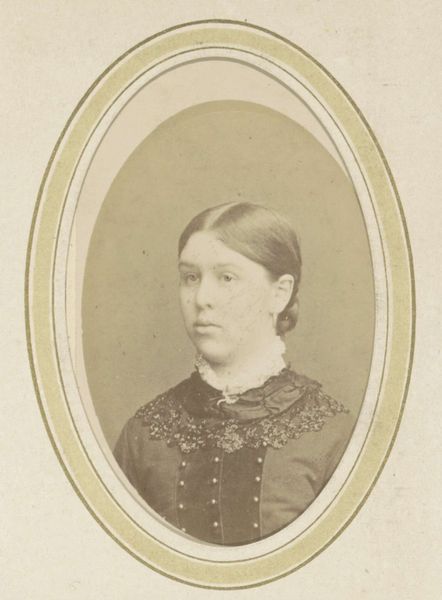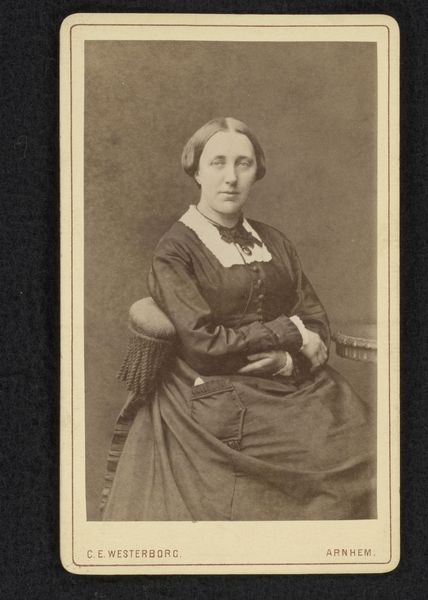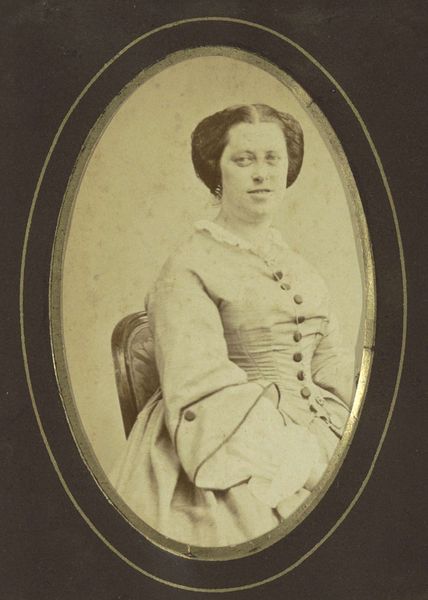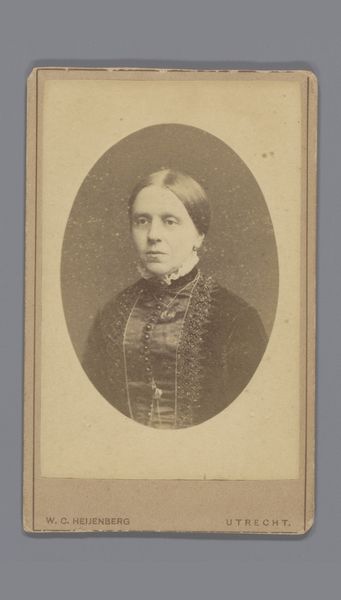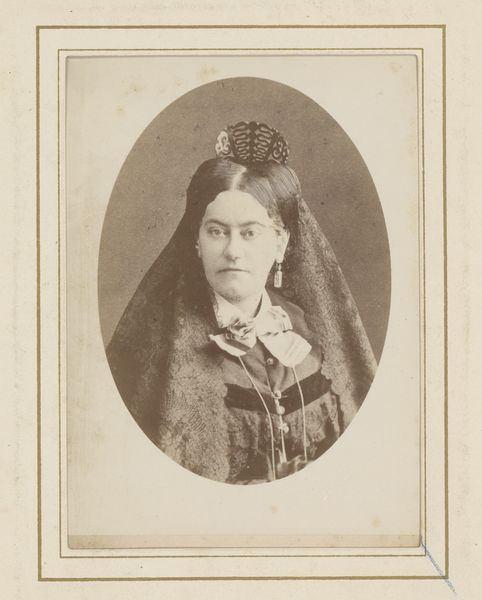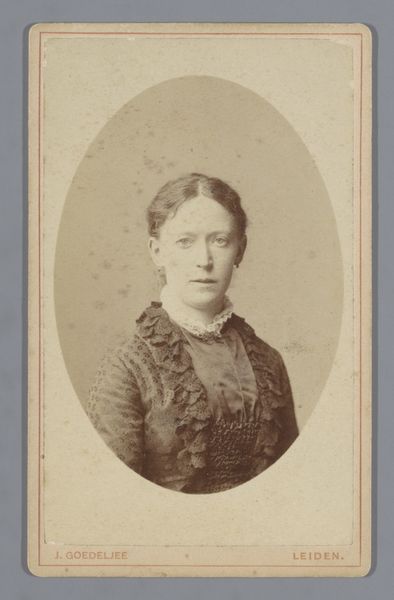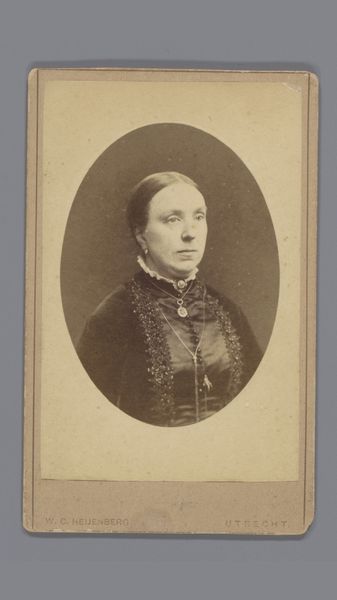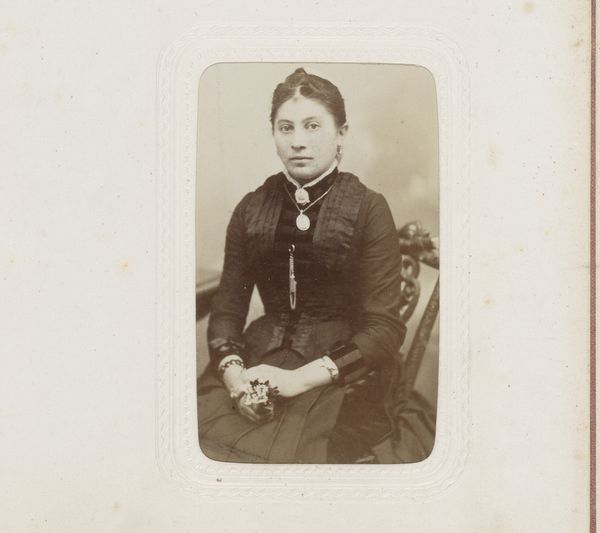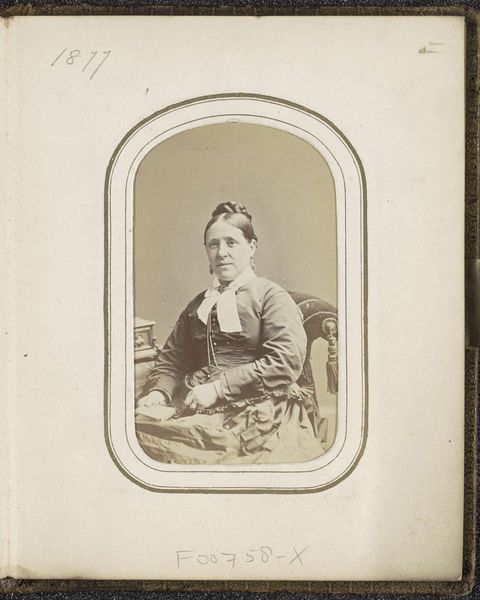
photography, gelatin-silver-print
#
photography
#
gelatin-silver-print
#
realism
Dimensions: height 103 mm, width 62 mm
Copyright: Rijks Museum: Open Domain
Editor: This is "Portret van Jet Boelen, zittend" by Johannes Petrus Oppers, made sometime between 1869 and 1890, using photography on gelatin silver print. The portrait feels quite formal and reserved. What social narratives are at play in this piece? Curator: Well, consider the historical context. The late 19th century was a time of rigid social structures, particularly for women. These photographic portraits, although seemingly simple, became tools of self-representation, performing a kind of social role. What do you notice about her attire? Editor: Her clothing seems fairly plain but proper, buttoned all the way up and quite dark in colour, her hair is also tied up. Curator: Exactly. This 'properness', which could signify either aspirations to or membership of the middle classes, becomes crucial. Can we assume this reveals the level of personal expression permitted in such formal portraiture? Consider how women used clothing as a subtle expression of their social position and potentially their desires, as active members in society who, by the late 19th Century, started campaigning for suffrage and representation. Editor: So, the photograph isn’t just a neutral depiction but an active negotiation of identity within those constraints? Curator: Precisely! This image prompts us to reflect on agency, visibility, and the ways in which photography, even in its early stages, participated in broader social and political dialogues around gender and class. What would this portrait be like had it been created today? Editor: I now appreciate the level of messaging packed into something that initially appeared rather still, I wouldn’t have initially appreciated the context! Thank you. Curator: Absolutely! And remember, every artwork, no matter how traditional it seems, offers a chance to understand our history, the evolution of social roles, and ongoing debates.
Comments
No comments
Be the first to comment and join the conversation on the ultimate creative platform.
